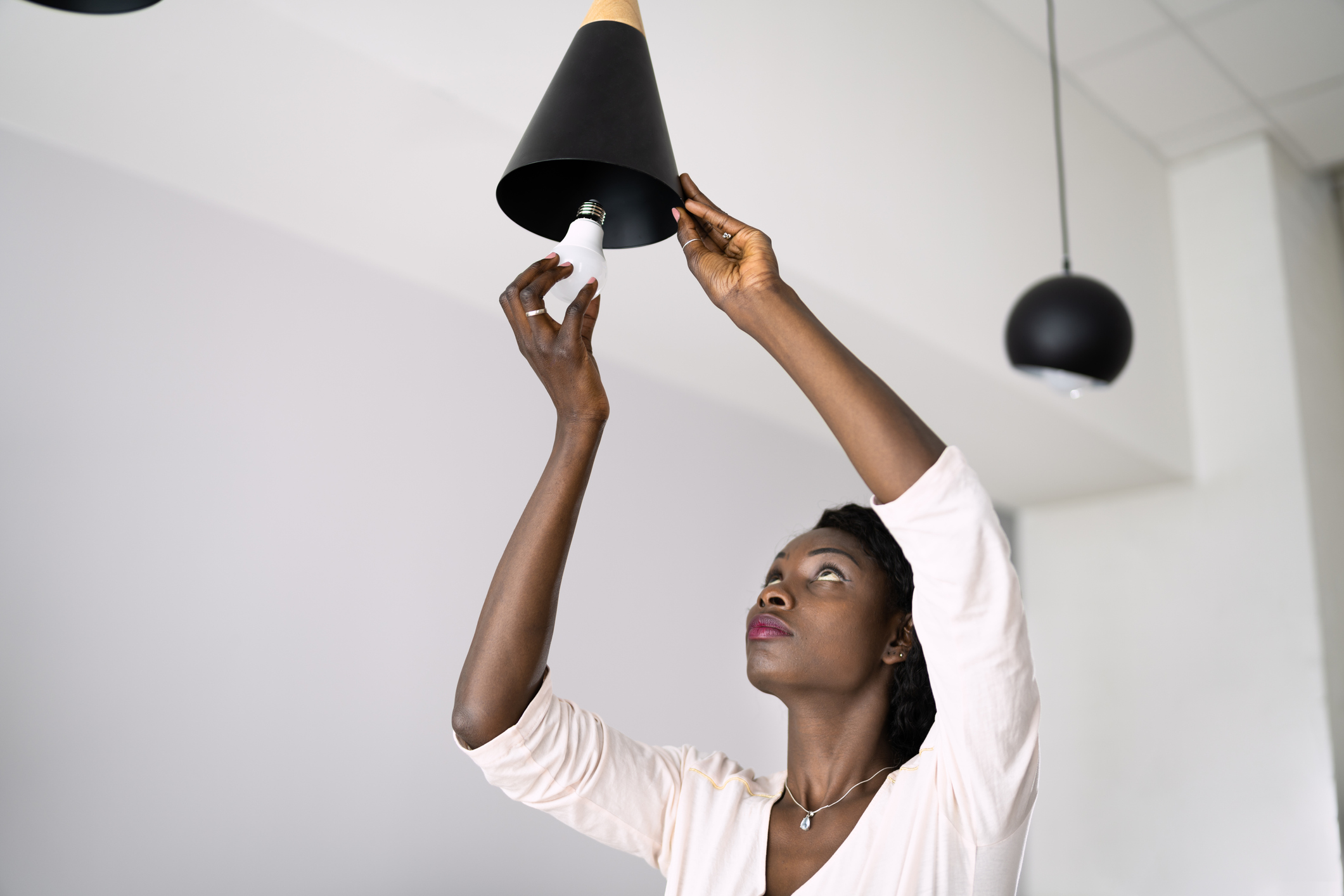Flickering Lights: When You Need to Worry
Updated 10/17/23 by Angela Rogers
In previous posts, we discussed possible causes for lighting problems such as unexpected dimming and repeatedly burned-out bulbs. This week, we'll explore another common problem: flickering lights. Sometimes flickering can be fun and decorative, like the light produced by these flicker flame chandelier bulbs, but in most cases it is undesirable.
While a flickering light bulb isn't necessarily cause for alarm, it is best to ensure it's not caused by a more serious issue. From simple fixes like loose light bulbs to issues like loose wiring that warrant an electrician's expertise, start troubleshooting your flickering bulbs by checking the common causes of flickering listed below.
Flickering in Fluorescent and LED Bulbs: Could Be Normal
Certain types of lighting technology are naturally more prone to flickering than others. For example, flickering sometimes occurs in fluorescent light bulbs within the first minute or so of operation, because it takes time for the phosphors to reach peak illumination. The light bulbs can also produce an initial flickering when the ballast is failing.
On the other hand, LED lights can flicker when improperly connected to a driver or with certain dimming systems. If the flickering lights are connected to a dimmer switch, you may need to make sure your dimmer switch is compatible with your bulbs.
Neither scenario indicates a serious electrical issue, but you may want to replace the offending light bulb, dimmer switch, or ballast if the flickering gets too annoying. You can find a wide range of replacement options by visiting 1000Bulbs.com.
Loose Light Bulb: Don't Sweat It
A loose bulb that is not properly screwed into the socket is the simplest reason for flickering. Checking for a loose bulb may seem like a no-brainer. However, when it comes to recessed lights or any other type of fixture in which the bulb is encased and not easily seen, it can be overlooked.
When checking for this issue, make sure to turn off the light before grasping and tightening the light bulb. Use heavy-duty gloves to tighten loose bulbs, as they are likely to be hot, especially if they have been on for a while. If your light bulb continues to flicker, keep troubleshooting and look for other causes.
Faulty Light Switch: Don't Sweat It
Another cause for flickering in light fixtures is a light switch that is not making proper contact with the bulb. Try toggling the switch on and off or shutting off the light fixture for a while and turning it back on. If the problem resolves, you've found your culprit. If you consistently need to do this, the switch likely needs to be replaced.
Voltage Fluctuation: Time to Call a Certified Electrician
If multiple lights flicker when you use large appliances that draw a high wattage, the voltage in your home could be fluctuating excessively or you could have an overloaded circuit. If the flickering continues after the large appliance is off, a more serious electrical issue may be at play. Other signs of voltage fluctuation include lights that dim unexpectedly or bulbs that frequently burn out.
Electricity typically flows into homes at around 120 volts. Although a little fluctuation is normal, your home should always be supplied with between 115 and 125 volts through your electrical panel. You can check the voltage in your home by purchasing a device called a voltmeter.
If the average of your readings is above the desired range, excessive voltage is the underlying issue. In some cases, it is appropriate to simply purchase 130-volt light bulbs which can handle a higher voltage to avoid flickering. However, always double-check with an electrician to ensure the voltage fluctuation doesn't put your home at risk of serious damage.
Loose or Poor Wiring: Time to Call a Licensed Electrician
Faulty wiring is the most serious reason for flickering lights, and is potentially dangerous. When left unchecked, loose or poor wiring can create a potential fire hazard as it is one of the leading causes of both electrical fires and house fires.
To check for inadequate wiring, first shut off the circuit breaker for the light at the electrical panel. Then, you can inspect and, if needed, remove the fixture to check for loose or outdated wiring. If the fixture appears to have a loose connection, it's time to call a professional electrician.
Even if there are no apparent wiring problems, if your lights continue flickering or do not function properly and you do not know the cause, call an experienced electrician to evaluate your home's electrical system to be on the safe side.
Need Help Troubleshooting Flickering Light Bulbs?
It's never a good idea to ignore a lighting or electrical problem. If you notice a flickering light bulb, always investigate, and if you can't find the culprit or the problem persists, call a licensed electrician to check your home's wiring. Do you have a problem with flickering lights that could be caused by something other than what's listed here? Speak with one of our lighting experts today at 1-844-420-0408.












